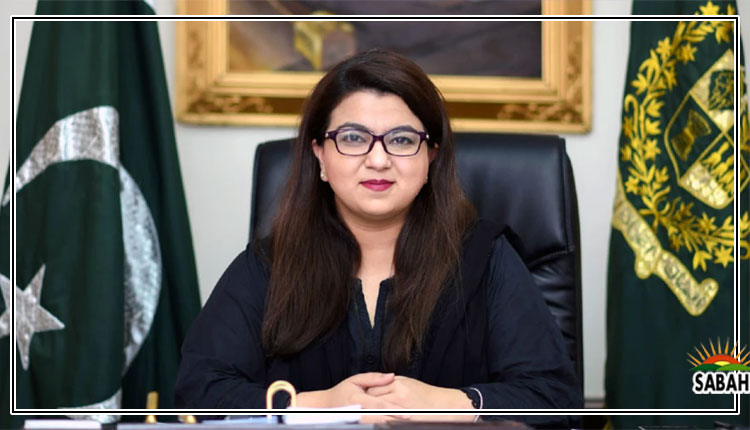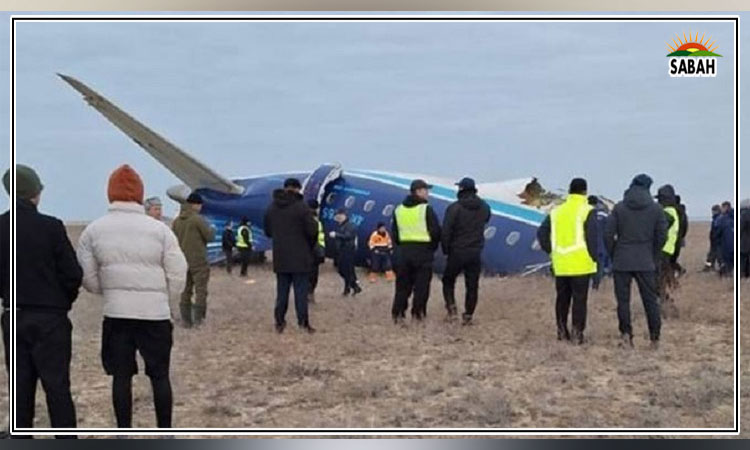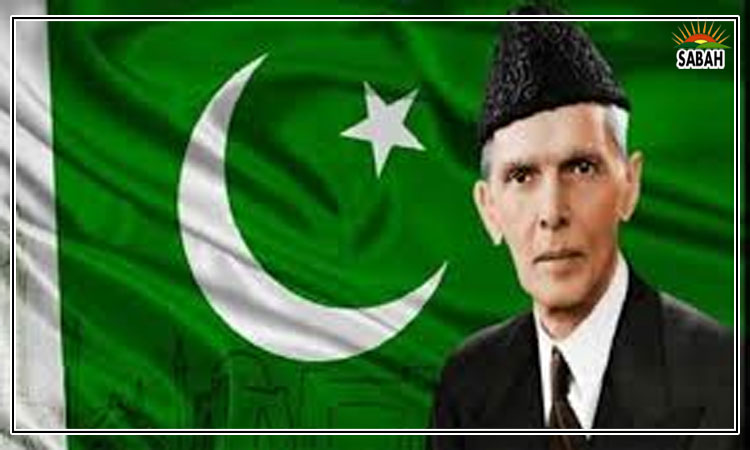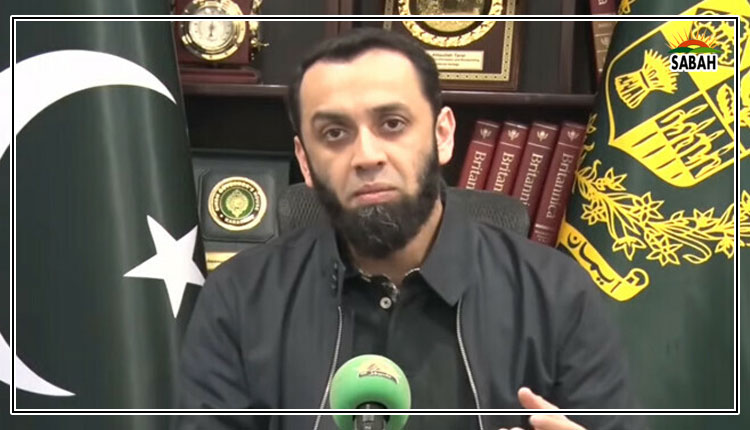World powers overlooking the pernicious acts of the India in Kashmir…Dr. Ghulam Nabi Fai
The Vienna Declaration and Program of Action adopted by the World Conference on Human Rights, confirms the human rights of women as an ‘inalienable, integral and indivisible part of human rights.” The Beijing Declaration and Platform of Action, both are an outcome of more than two decades of collective efforts of the international community. NGO’s and civil society at large, and their whole and sole objective was the empowerment of women.
The changing millennium has established the importance of women in the economic, social, cultural and political conditions. And it is a fact that true development of a society cannot be achieved and is not possible without the full participation and involvement of women in all activities of a human society.
Violence against woman remains a major issue in the development and advancement of women. The violations of women’s right during all conflicts has remained an issue in the twentieth century and if not corrected it will surely affect women not only in twenty-first century but also in the next millennium.
As per report of the various NGO’s and human rights agencies, hundreds of thousands of women have been the target of sexual crimes at the hands of the armed forces in Rwanda, Bosnia, Kosovo, Myanmar, Kashmir and elsewhere. These NGO’s have documented incidents of gang-rape of young girls and grandmothers alike. Sexual abuse sometimes in the presence of male family members is used as a weapon of war. Rape by armed forces is, indeed, a gross violation of international human rights and humanitarian law. The condemnation of rape during war and internal conflicts must be condemned by all including Human Rights Council to protect the rights of women in all circumstances.
The report of the ‘Special Rapporteur on Violence Against Women’ noted that rape, “is the destructive combination of power, anger and sex which incites sexual violence against women. The victims of rape suffer a disorder, anxiety, and the ‘Rape Trauma Syndrome’ which causes them to constantly relieve their rape through a series of flashbacks, dreams, nightmares and body memories.”
The United Nations High Commissioner on Human Rights (UNHCHR) issued its “Report on the Situation of Human Rights in Kashmir,” on July 8, 2019. The report contains graphic documentation of human rights violations being committed by the Indian military and paramilitary forces in Jammu & Kashmir. This is a significant step towards greater international recognition of the serious abuses committed against Kashmiris at the hands of Indian army. This report takes the veil of secrecy off of India’s crimes against humanity.
The 49-pages report cites specific incidents where the Indian Government violated the very principles of human decency and democratic freedom against the people of Kashmir. It is well documented that the bloody occupation has resulted in massive human rights violations, particularly targeting women and children. The sanctity of women has been violated, in a gruesome and unforgiving fashion. The UN report upholds that [In the 2013 report on her mission to India, the ‘Special Rapporteur on Violence Against Women,’ its causes and consequences, said, “[W]omen living in militarized regions, such as Jammu and Kashmir and the north-eastern states, live in a constant state of siege and surveillance, whether in their homes or in public. Information received through both written and oral testimonies highlighted the use of mass rape, allegedly by members of the State security forces, as well as acts of enforced disappearance, killings and acts of torture and ill-treatment, which were used to intimidate and to counteract political opposition and insurgency.”]
The United Nations report further illustrates that, “One significant case that illustrates the state’s failure to investigate and prosecute allegations of sexual violence and addressing impunity for sexual crimes in Kashmir is the Kunan-Poshpora mass rape, which took place 27 years ago and for which attempts to seek justice have been denied and blocked over the years by the authorities at different levels. According to survivors and a local administration official, on the night of 23 February 1991, soldiers from the 4 Rajputana Rifles regiment of the Indian Army gang-raped around 23 women of Kunan and Poshpora villages of Kupwara district. The Indian Army and Government of India have denied the allegations”
The UN report further details that “Survivors and human rights groups have campaigned for an independent investigation into this case for many years. In October 2011, SHRC directed the state government to reopen and reinvestigate the case and to prosecute a senior official whom it accused of deliberately obstructing the investigation. On 18 July 2013, a court in Kupwara district ordered the state police to reinvestigate the case within three months. When no progress was made despite these orders, five survivors filed a petition in the Jammu and Kashmir High Court in October 2013. In July 2014, the High Court reportedly said the 2011 SHRC recommendations were supported by evidence and asked the state government to consider paying monetary compensation within three months.”
A joint report of Human Rights Watch and Physicians for Human Rights says on page 7 that “The reported rape on February 23, 1991, of women from the village of Kunan Poshpora by army soldiers of the Fourth Rajputana Rifles became the focus of a government campaign to acquit the army of charges of human rights violations. The incident provides a telling example of the government’s failure to ensure that charges of human rights violations committed by members of its armed forces are properly investigated and those responsible held to account.”
It further says that “This report is the second of a series which Asia Watch and PHR are publishing on human rights in Kashmir. In publishing this report, PHR and Asia Watch hope to focus international attention on the use of rape as a tactic of war in Kashmir and on government policies which have led the security forces to believe they can carry out these crimes with impunity. The cases included in this report are illustrative; there have been many more cases of rape than was possible to document here.”
The joint report also adds: “India’s military laws, notably the Army Act and equivalent legislation governing the federal paramilitary forces, also prescribe courts-martial and punishments for members of these forces responsible for rape. In general, military courts in India have proved incompetent in dealing with cases of serious human rights abuses and have functioned instead to cover up evidence and protect the officers involved. In this report, Asia Watch and PHR recommend that all military or paramilitary suspects in rape cases be prosecuted in civilian courts.”
“Do You remember Kunan Poshpora” documentary evidence of five brave Kashmiri women scholars wrote these words on page 1, “This book is about one night in two villages in Kashmir. It is about a night that has refused to end for 24 long years, a night that holds stories of violations, injustice, oppression and falsehood, as well as acts of courage, bravery and truth. This book is about Kunan Poshpora.”
Five courageous Kashmiri scholars, Essar Batool, Ifrah Butt, Samreena Mushtaq, Munaza Rashid & Natasha Rather narrate in the book on page xxv, the horrors in these words, “How does one illuminate this dark room, how does one replace despair with hope, how does one continue to invest in the belief that justice will be done? This is the essence of the ‘story’ that the authors share with us in this book. But, before they share the details of the story of Kunan and Poshpora, each one of the five authors tells her own story – her social and economic background, how her family tried its best to protect her from the ravages of the time and the surroundings that were marred by signs of mass violence, how certain words or questions were forbidden and could never be articulated, words such as rape and torture of women and men by the armed forces, how they coped with their own fears and insecurities. How one of them had nightmares that she too might be raped.
How another recounts the utter horror she felt with when she discovered as a grown up that her own father had been picked up, and brutally tortured by these men in uniform many years ago, leading to his death when she was barely three. Each one recounts the moment of her own ‘awakening’ and how it led her, and collectively all of them, on to the path of discovering the hard and often ugly truth, even if it was buried and forgotten.
The five fearless authors thus began to evacuate the truth, by sifting through a web of lie and botched up investigations, by painstakingly building a bridge of trust and hope between the victims / survivors of Kunan Poshpora and the various courts of law where justice is meant to be dispensed.”
Dr. Nazir Gilani, President JKCHR in a written statement submitted to the UN Secretary General during 58th session of HRC said, “The issues of Kashmiri women have multiplied ever since. The Kunan Poshpora rape case of 1991 and the issue of half-widows (women whose husbands are missing and cannot re-marry) have continued to remain unresolved.”
The suggestion made by Dr. Nazir Gilani is very pertinent when he said, “It is high time that Human Rights Council addresses the question of sexual violence committed against Kashmiri women as detailed in Paras 125 to 133 of OHCHR Report of 14 June 2018. The Kunan-Poshpora mass rape victims have not received any justice for the past 30 years. Many of the victims have died while waiting for justice.”
How many Kashmiri women have to be dishonored before one concludes that a human rights violation has taken place? This is one of the questions that is on the minds of millions of Kashmiri women. Please remember that these women live under the stranglehold of a 900,000 strong army of occupation. These women are not oblivious to the world events. They know that in welcoming the appointment of a ‘Special Rapporteur on Violence Against Women,’ the Vienna Declaration declared that “the human rights of women are an inalienable, integral and indivisible part of the universal human rights.” They wonder what action was taken by this Rapporteur, whose mandate included action on “state-sponsored violence against women.” They waited with hope because the same document had asked the United Nations human rights body to “strengthen mechanisms or accountability to ensure that governments take steps to end discrimination and punish perpetrators of violence against them.” (Reference UN documents: E/CN/4/1995/NGO/28, and /5).
These violated Kashmiri women ask: what action has been taken to enforce the writ of the Universal Declaration of Human Rights and the Declaration on the Elimination of Violence Against Women?
Are these reports and revelations not enough to shake the conscience of the world powers and the Human Rights Council? The perpetrator of this state policy, India, has the temerity to sit not only in the Human Rights Council but also in the Security Council. Why does the international community not condemn India?
During the years of suffering in Jammu & Kashmir, despite some intermittent and half-hearted efforts, the situation has worsened. And why has that been so? Because the response of the international community to the predicament of Kashmiri people has been essentially weak and lacking in credibility. It is equally true that the United Nations mechanisms do not effectively address massive human rights violations. In the situations of armed conflicts and civil strife, it is the innocent people who are killed and brutalized.
There is need to forcefully deal with the root cause of the conflict. As we know that the underlying cause of conflict between India and Pakistan is the denial of the right of self-determination which was promised by the United Nations to the people of Jammu & Kashmir. If the United Nations continues to apply its writ selectively, then the tide of world opinion may turn against it. If we continue to target small countries and overlooking the pernicious acts of the bigger countries, then the global family may lose its hope and the United Nations system may lose much more than that – its credibility.
On behalf of the women and children of the world who continue to be the innocent victims, we hope that the Platform of Action suggest implementation of a special program to rehabilitate the women and children of all conflicts in all situations. And, in particular, the women of Kashmir still have confidence in the mechanism of the United Nations and its sense of justice. But there are limits even to hope. We are often assailed by despair because of the half-hearted response of the international community to our tragic situation. Unfortunately, the indifference, the inaction, the passivity and the silence of the United Nations, of course unintentionally, have given the sense of impunity to the occupation authority in Kashmir.











